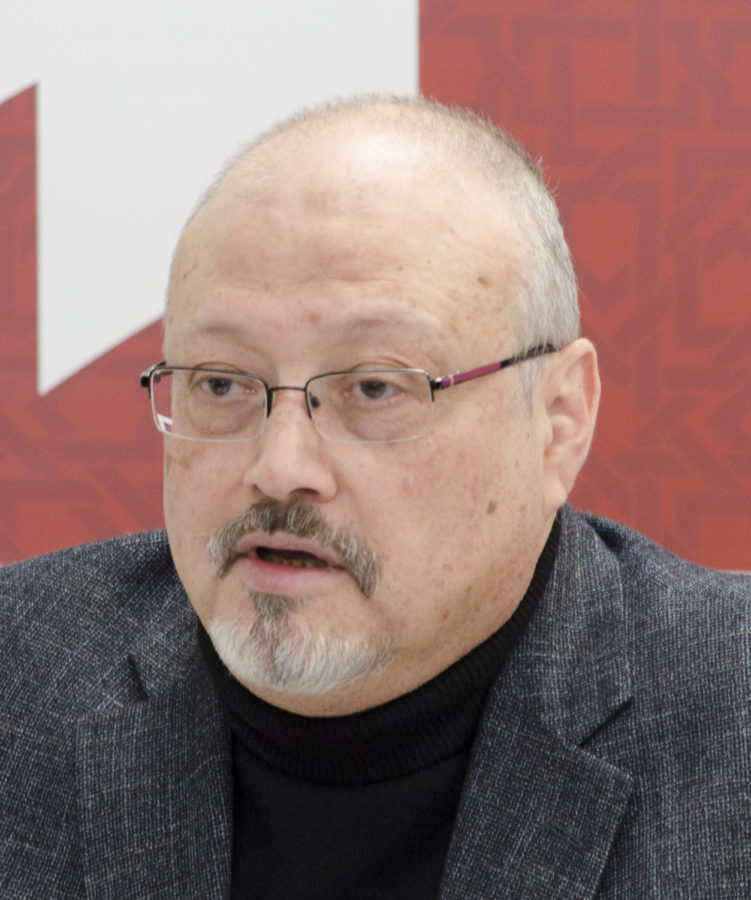Saudi journalist killed in Istanbul Consulate
Journalist’s death reveals larger problem of Freedom of the Press
Photo obtained via Creative Commons
Jamal Khashoggi speaks at a press conference in March.
October 30, 2018
On Oct. 2, Saudi Arabian journalist Jamal Khashoggi was seen entering the Saudi Arabian Embassy. He did not leave alive, or in one piece.
Turkey dropped the bombshell a few weeks later, claiming Saudi Arabia had killed the journalist on Oct. 2. Initially denying, Saudi Arabia claimed that Khashoggi was simply interrogated. However, a seven minute audio tape handled by American and Turkish intelligence agencies reveals his death was long and painful, and likely involved torture.
The team that was involved in the killing was reportedly tied to Crown Prince Mohammed Bin Salman, a young maverick who is all but leading Saudi Arabia. He’s leading a set of reforms, economically and socially, to reduce Saudi Arabia’s economic dependence on oil.
“They are trying to make necessary economic reforms to relieve some of the reliance on oil,” said Ankura consulting Senior Managing Director and ex-Obama daily briefer Michelle DiGruttolo.
While some mistakenly attribute these reforms to westernization, it clearly is not, which is apparent in their killing of a journalist and the suppression of Freedom of the Press.
“It is a little naive,” DiGruttolo said. “They’re opening their economic system- that’s not the same as opening up the political system.”
Khashoggi was a mild critic of the Saudi government, committing himself to ‘self-exile’ in Turkey. There, he became a contributor for the Washington Post, often uploading criticism of the Saudi government. For some reason, this mild criticism was enough to have him killed.
“It is well-known that Khashoggi disagreed with many of the ruler’s reforms, and was very close to the royal family, which lent him access and credibility,” DiGruttolo said. “Saudi Arabia has become increasingly intolerant of dissent and criticism since the Crown Prince began implementing his reform policies last year.”
The killing of Khashoggi reveals the greater issue rising across the globe: freedom of the press. It’s being attacked all over, even in place where it was once a core tenant of society. Attacking the media as an ‘enemy of the people’ is an affront to democracy itself. It starts off slowly, but its a slippery slope.



